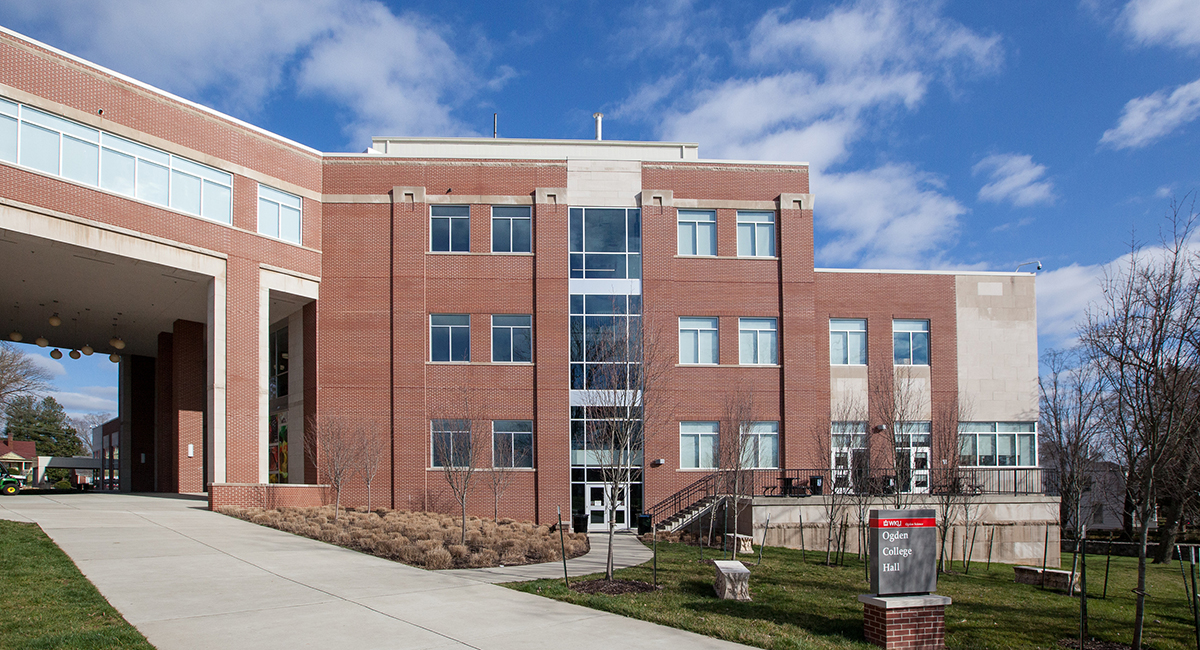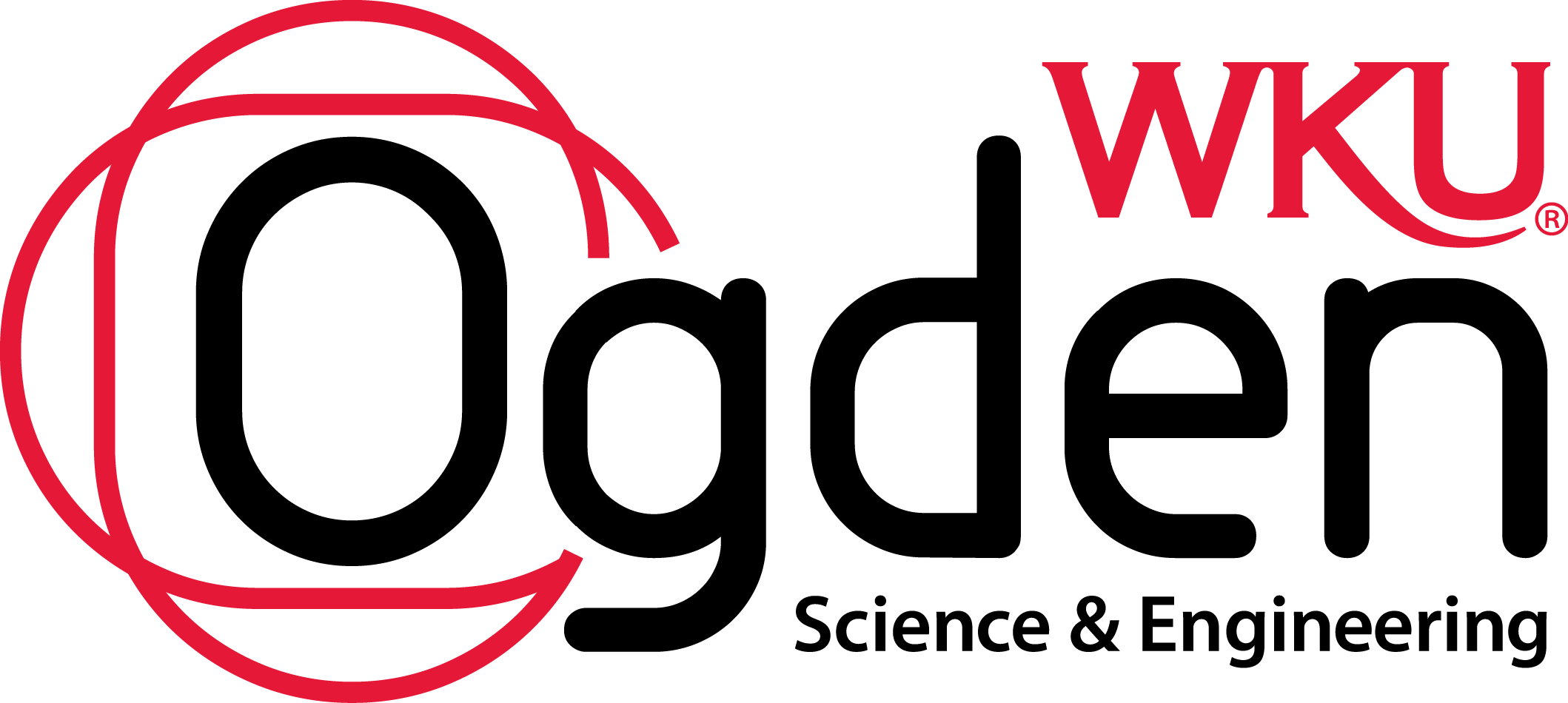Program Requirements (30-32 hours)
The program requirements include 12 hours of common courses and an additional 18 - 20 hours of coursework, depending on the concentration. The additional 18-20 hours of coursework must include a minimum of two lecture courses at the 500 level, and no more than 12 hours may be taken at the 400G level.
All master's degree-seeking students must complete the following common courses:
Course List
| Code |
Title |
Hours |
| CHEM 516 | Chemical Literature Review | 2 |
| CHEM 588 | Research Proposal | 2 |
| CHEM 598 | Graduate Seminar 1 | 2 |
| CHEM 599 | Thesis Research/Writing 2 | 6 |
| Total Hours | 12 |
Master's degree-seeking students must select one of the following concentrations:
- General thesis concentration
- Biochemistry thesis concentration
- Research intensive concentration (only recommended in special circumstances and with approval of a research advisor)
General Thesis Concentration
Course List
| Code |
Title |
Hours |
| 9 |
CHEM 531 | Advanced Analytical Chemistry | |
or CHEM 435G | Instrumental Analysis |
CHEM 562 | Advanced Biochemistry | |
or CHEM 535 | Analytical Biochemistry |
or CHEM 446G | Biochemistry |
CHEM 520 | Advanced Inorganic Chemistry | |
or CHEM 420G | Inorganic Chemistry |
CHEM 541 | Advanced Organic Chemistry | |
or CHEM 540 | Organic Reactions |
CHEM 550 | Advanced Physical Chemistry | |
or CHEM 452G | Physical Chemistry II |
or CHEM 450G | Physical Chemistry I |
| * | 9 |
| Total Hours | 18 |
Biochemistry Thesis Concentration
Course List
| Code |
Title |
Hours |
| 9 |
CHEM 531 | Advanced Analytical Chemistry | |
or CHEM 435G | Instrumental Analysis |
CHEM 562 | Advanced Biochemistry | |
or CHEM 535 | Analytical Biochemistry |
or CHEM 446G | Biochemistry |
CHEM 520 | Advanced Inorganic Chemistry | |
or CHEM 420G | Inorganic Chemistry |
CHEM 541 | Advanced Organic Chemistry | |
or CHEM 540 | Organic Reactions |
CHEM 550 | Advanced Physical Chemistry | |
or CHEM 452G | Physical Chemistry II |
or CHEM 450G | Physical Chemistry I |
| CHEM 535 | Analytical Biochemistry | 3 |
| or CHEM 562 | Advanced Biochemistry |
| or CHEM 446G | Biochemistry |
| CHEM 467G | Biochemistry | 3 |
| CHEM 447G | Lab Biochemistry | 2 |
| * | 3 |
| Total Hours | 20 |
Research Intensive Thesis Concentration
Candidates for the research intensive concentration are required to complete 30 semester hours of graduate work, including 12 hours of coursework and 18 hours of research-related graduate work. Candidates must apply to the Department Graduate Committee in order to be considered for this concentration. As part of the concentration application, they must select a research advisor and meet with the committee to demonstrate they understand the requirements for this concentration. The Committee must consider factors such as previous research experience of the student, publication record of the student, and the research advisor’s publication record when determining if the student can pursue this concentration. The student and advisor must submit a progress report to the Committee by the end of the second semester. If the committee determines there is insufficient progress towards research and publication, the student will be moved to the normal thesis concentration. A student in the Research Intensive Thesis concentration may also opt to pursue the Thesis option at the end of the first or second semester after consulting with their research advisor.
A student moving to another concentration within the first or second semester should be able to complete the requirements within the average two year period. A student who wishes to move to another concentration in the second year of graduate study must get permission from the Graduate Committee and will probably require an additional semester of coursework to complete the degree.
Course List
| Code |
Title |
Hours |
| 3 |
CHEM 520 | Advanced Inorganic Chemistry | |
CHEM 531 | Advanced Analytical Chemistry | |
CHEM 541 | Advanced Organic Chemistry | |
CHEM 550 | Advanced Physical Chemistry | |
CHEM 562 | Advanced Biochemistry | |
| CHEM 596 | Practicum Research Experience in Chemistry 1 | 6 |
| CHEM 595 | Scientific Writing in Chemistry 2 | 6 |
| 3 |
CHEM 535 | Analytical Biochemistry | |
CHEM 540 | Organic Reactions | |
CHEM 560 | Chemical Agents and Explosives | |
CHEM 590 | Material Chemistry | |
CHEM 591 | Material Chemistry Laboratory | |
| Total Hours | 18 |
Joint Undergraduate Master's Program (JUMP) in chemistry.
The Department of Chemistry offers a Joint Undergraduate Master's Program (JUMP) which provides academically outstanding students the opportunity to complete both an undergraduate and graduate degree in an accelerated timeframe. See https://catalog.wku.edu/graduate/enrollment/ or contact the chemistry graduate program coordinator for additional information.
This JUMP program allows students to start working toward their MS in chemistry while completing their bachelor’s of science degree in chemistry. Undergraduate students admitted into JUMP may take graduate courses that count toward both undergraduate and graduate degrees. Up to 9 credit hours can be double-counted toward both degrees, and up to 12 hours of graduate courses can be taken while a student is completing the undergraduate degree. The key benefit of the JUMP program is that it allows students to earn a bachelor’s and a master’s degree in an accelerated timeframe. For more information, see https://www.wku.edu/chemistry/.
A student must be a chemistry or biochemistry major, and they must have completed at least one semester long research experience with a faculty member in the Department of Chemistry to be considered for admission to the chemistry JUMP program. Note that admissions are competitive and dependent upon graduate program capacity.
The graduate courses accepted for the undergraduate program meet student learning outcomes for both the undergraduate and graduate programs linked in this JUMP program.
Consistent with the WKU JUMP policy, the Department of Chemistry proposes to allow no more than 9 hours from the following graduate CHEM courses to be used by students in the JUMP program toward their bachelor’s degree: CHEM 420G, CHEM 435G, CHEM 446G, CHEM 450G, CHEM 452G, CHEM 520, CHEM 531, CHEM 535, CHEM 540, CHEM 541, CHEM 550, and CHEM 562.
Learning outcomes in the undergraduate program are fulfilled through core courses or restricted electives, and every graduate course listed above maps directly onto one of these learning outcomes. Thus, all learning outcomes of the undergraduate program are maintained, but at a more rigorous level, through completion of these graduate courses.



